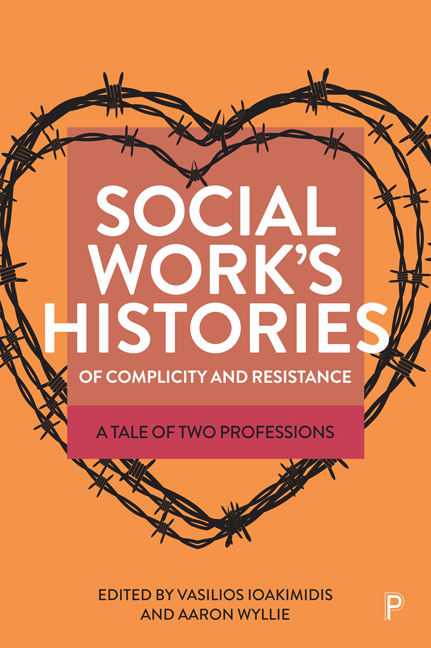Book contents
- Frontmatter
- Contents
- Notes on contributors
- Acknowledgements
- Preface
- Part I Making amends with the past
- Part II Legacies of colonialism and racism in social work
- Part III Social work’s contested ideologies
- Part IV Social work’s complicity with institutionalisation and detention
- Part V Survivor perspectives and contemporary reflections
- Index
4 - The oppressive history of ‘child welfare’ systems and the need for abolition
Published online by Cambridge University Press: 20 January 2024
- Frontmatter
- Contents
- Notes on contributors
- Acknowledgements
- Preface
- Part I Making amends with the past
- Part II Legacies of colonialism and racism in social work
- Part III Social work’s contested ideologies
- Part IV Social work’s complicity with institutionalisation and detention
- Part V Survivor perspectives and contemporary reflections
- Index
Summary
Introduction
The history of the ‘child welfare’ system in the United States, as is true of the history of most government systems following the abolition of human chattel slavery, centred on maintaining and preserving the system of White supremacy upon which the US was founded. Since its earliest origins, the ‘child welfare’ system has been designed to maintain the superiority of White Americans while maintaining the oppression of Black Americans, first through intentional exclusion of Black families when services focused largely on poverty relief, and later through intentional over-involvement when those services shifted to surveillance and punishment due to poverty. While the practice of forcibly separating Black children from their parents as an act of racial oppression originated with human chattel slavery, today the ‘child welfare’ system, which we more accurately refer to as the family policing system,1 maintains this oppression through the forced removal of Black children from their families at a rate nearly double that of White children (Puzzanchera and Taylor, 2021). This act of racial oppression perpetuates harmful outcomes among Black Americans in the form of poverty, homeless, joblessness and others, which each serve as drivers for their continued involvement in and oppression by this system.
Despite these racist intents and the harm that results, the family policing system has largely avoided critique, due to a highly coordinated and successful campaign to frame family policing intervention as not only a needed intervention but a fundamentally indispensable intervention for children who are being harmed. While this myth of a needed intervention is widely held among the public, it obscures the fact that less than one-fifth (17 per cent) of all children who are forcibly removed from their parents have experienced any form of physical or sexual harm2 (U.S. Department of Health and Human Services, 2020). In reality, more than 60 per cent of all children in the US who are forcibly separated from their parents are separated due to reasons classified by the state as ‘neglect’, which is largely associated with family poverty (Pressley, 2020; Slack et al, 2004).
- Type
- Chapter
- Information
- Social Work's Histories of Complicity and ResistanceA Tale of Two Professions, pp. 54 - 72Publisher: Bristol University PressPrint publication year: 2023

